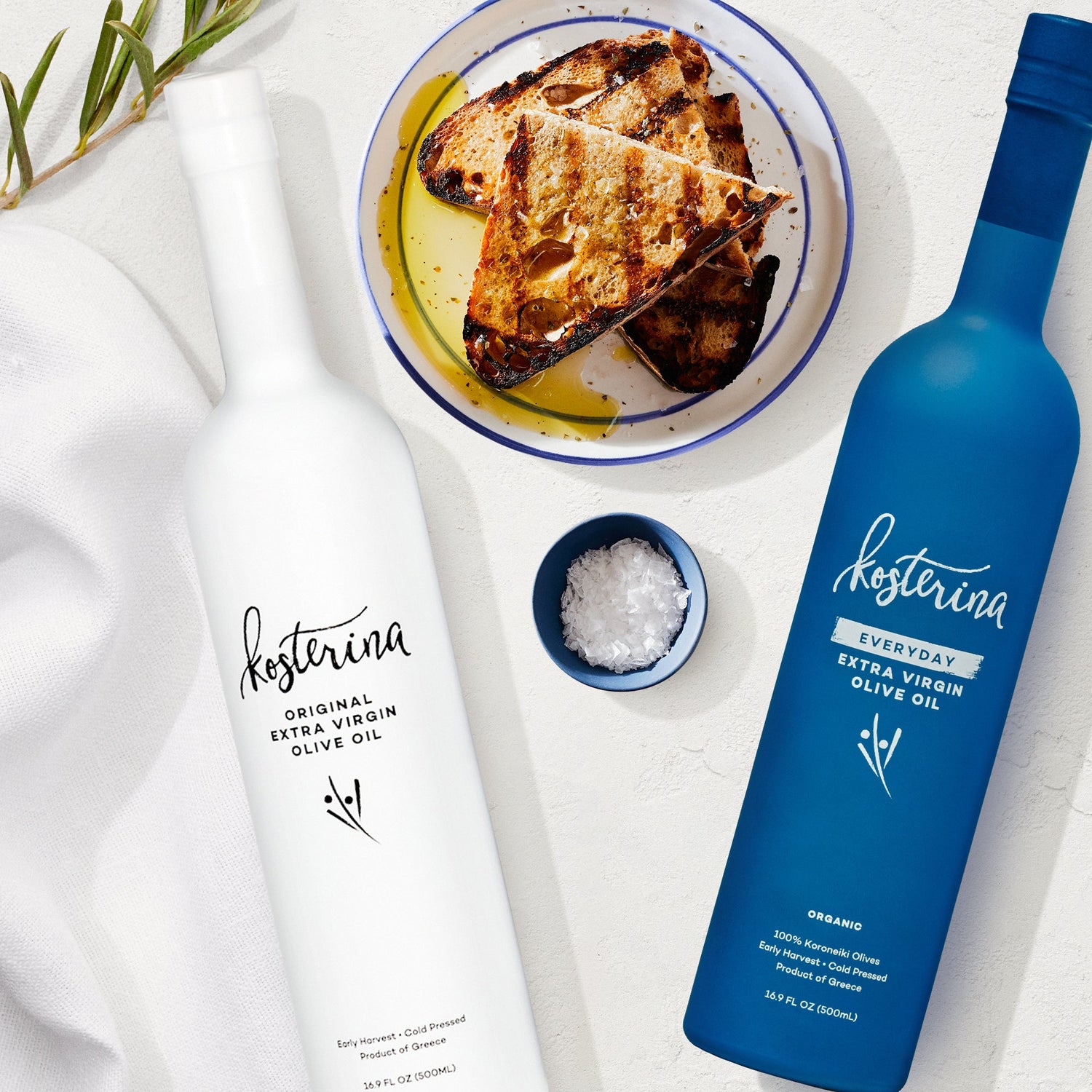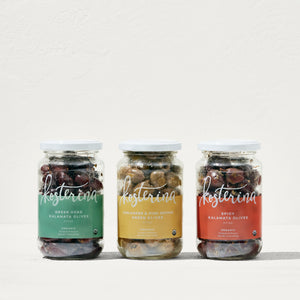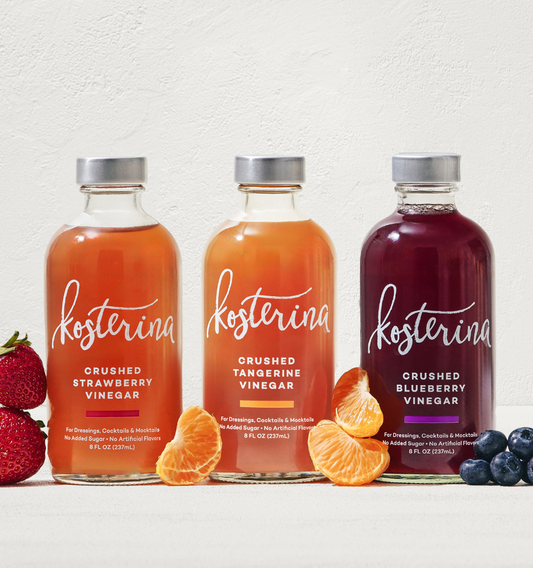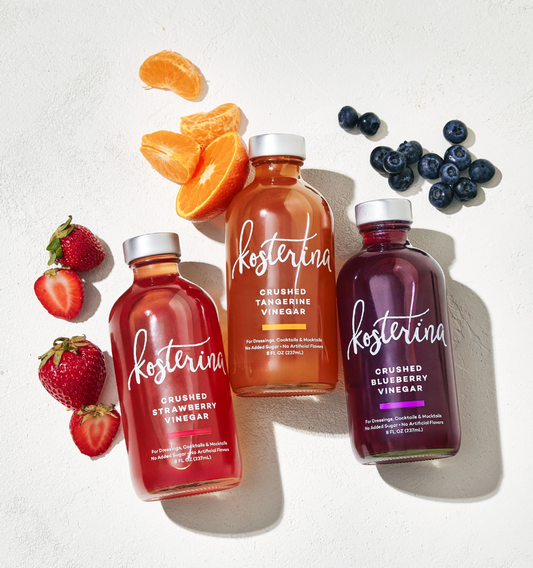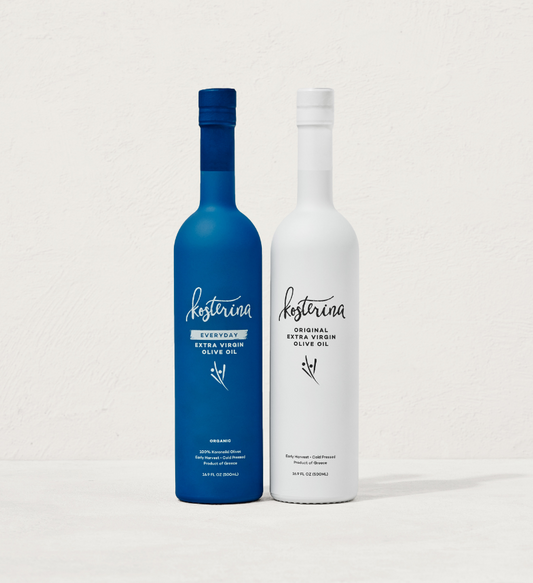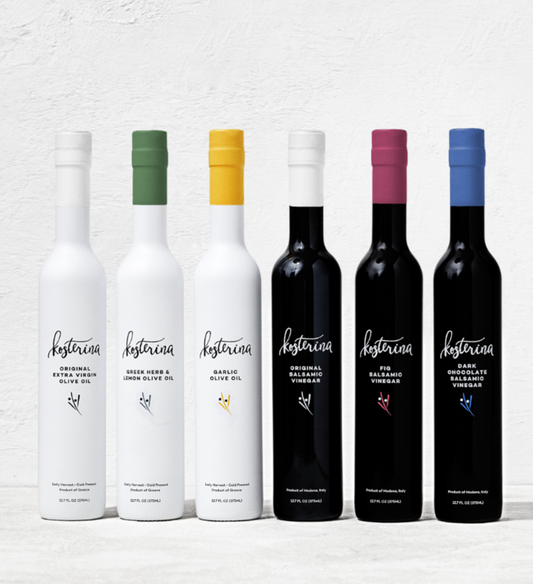Dear Kosterina Family,
You all may remember that we’ve dug into the incredible benefits of fiber for our gut microbiome and overall health in our Book Report on Dr. Will Bulsiewicz’s Fiber Fueled. But today we’re going to go beyond fiber and dive deeper into fermented foods.
So What is Fermentation and What are the Benefits?
Traditionally, fermentation was a process used to preserve food. It’s a natural process that involves the breakdown of sugars and other organic compounds by microorganisms like bacteria, yeast, and molds. I know that doesn’t sound ultra delicious but the magic behind fermented foods is real. Some common fermented foods include yogurt, kimchi, kefir, kombucha, cheese, sourdough bread, pickles, and even olives!
One of the primary reasons fermented foods have gained popularity is their remarkable impact on gut health. The human digestive system is home to trillions of microorganisms, collectively known as the gut microbiome. Fermented foods introduce beneficial probiotics into this microbial ecosystem, helping to maintain a balanced and diverse gut microbiome. Other benefits include:
- Enhanced Nutrient Bioavailability -- Fermentation is known to increase the bioavailability of certain nutrients, making them easier for the body to absorb. This means that consuming fermented foods, enhance the absorption of essential minerals like iron, calcium, magnesium, and even antioxidants.
- Digestive Comfort -- Fermented foods can be especially beneficial for those with digestive issues. The probiotics present in these foods help regulate digestion by promoting a healthy balance of gut bacteria. This can alleviate symptoms of conditions like irritable bowel syndrome (IBS).
- Immune System Support -- The probiotics found in fermented foods help strengthen the immune system by maintaining a balanced gut microbiome and promoting the production of immune-boosting compounds. This can lead to a reduced risk of infections and allergies.
Despite all these incredible benefits, I’ve personally found it difficult to incorporate fermented foods into my diet on a regular basis. I am just not finding myself reaching for kimchi and sauerkraut every day. This was part of the reason I wanted to launch Kosterina Olives.
Many of the black olives found in the U.S. are not fermented. Producers will try to make the de-bittering process shorter and cheaper by doing it chemically using sodium hydroxide (or lye). This results in an olive that is no longer raw, organic, natural and is certainly not healthy anymore.
The difference between our olives and common olives is our natural curing process. We cure our olives in sea salt brine for 6-12 months, during which the fermentation begins to create natural lactic bacteria. Our olives are also dry, vacuum-packed which has several advantages.
- Dry packing means our olives do not need to be pasteurized – in other words, they don’t have to undergo a heat process that inevitably changes the texture, taste and nutritional characteristics. Avoiding pasteurization also allows us to keep the fermentation process going and the probiotics alive resulting in a product that has the same nutritional benefits as other fermented foods.
- Since there is no liquid or brine, you can snack straight from the jar or add to salads or charcuterie boards without any mess.
Finally, have you ever heard of black garlic? It’s not easy to find but this creamy, sweet, tangy version of garlic is definitely worth seeking out if you’re looking for additional fermented food options.
Peace, Love, and EVOO,
Katina & The Kosterina Team
